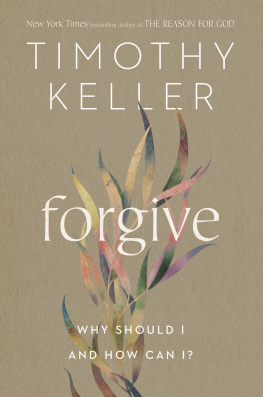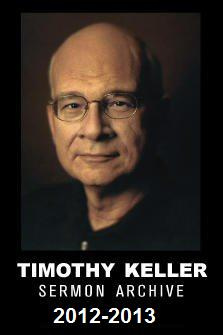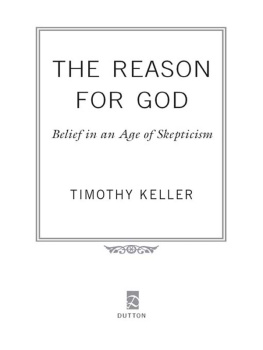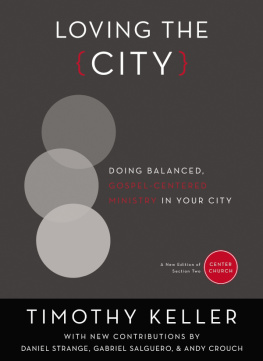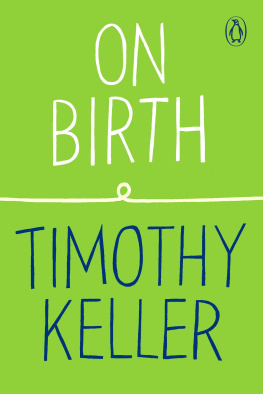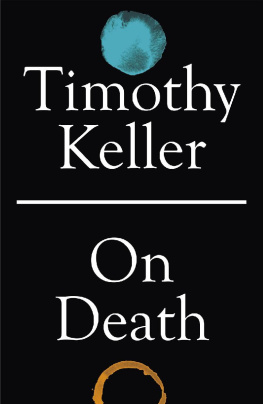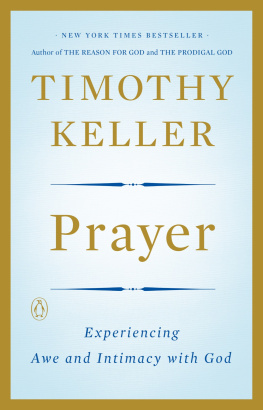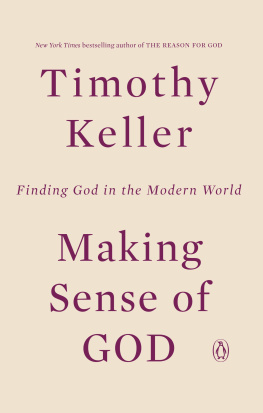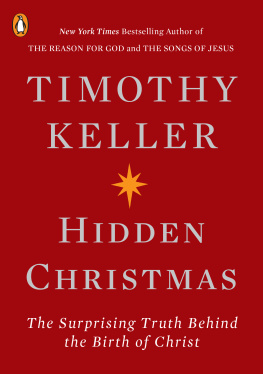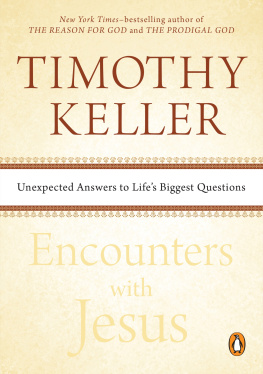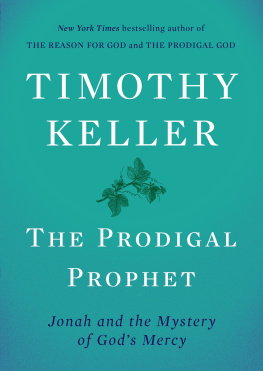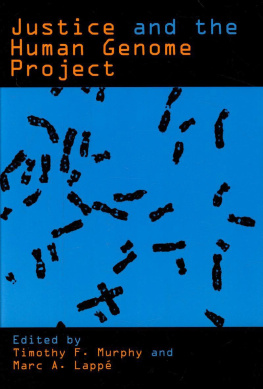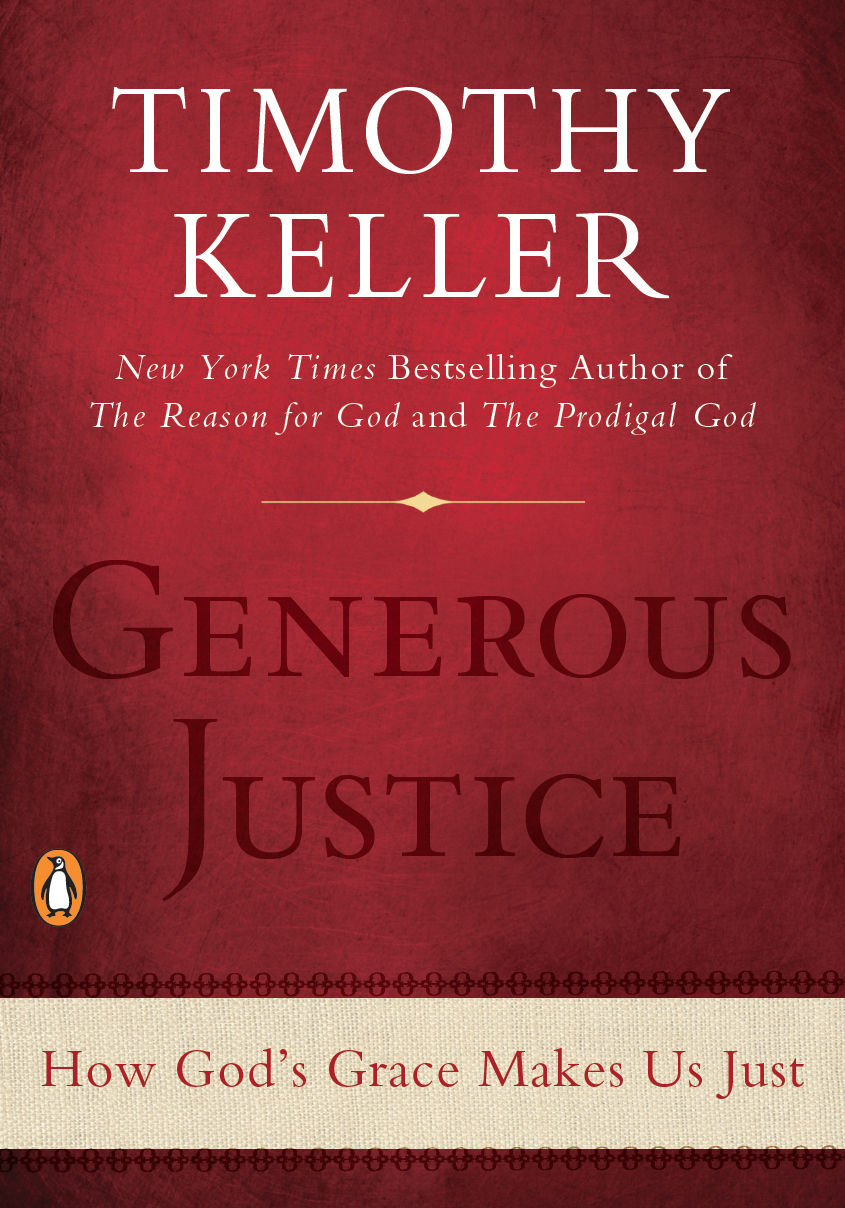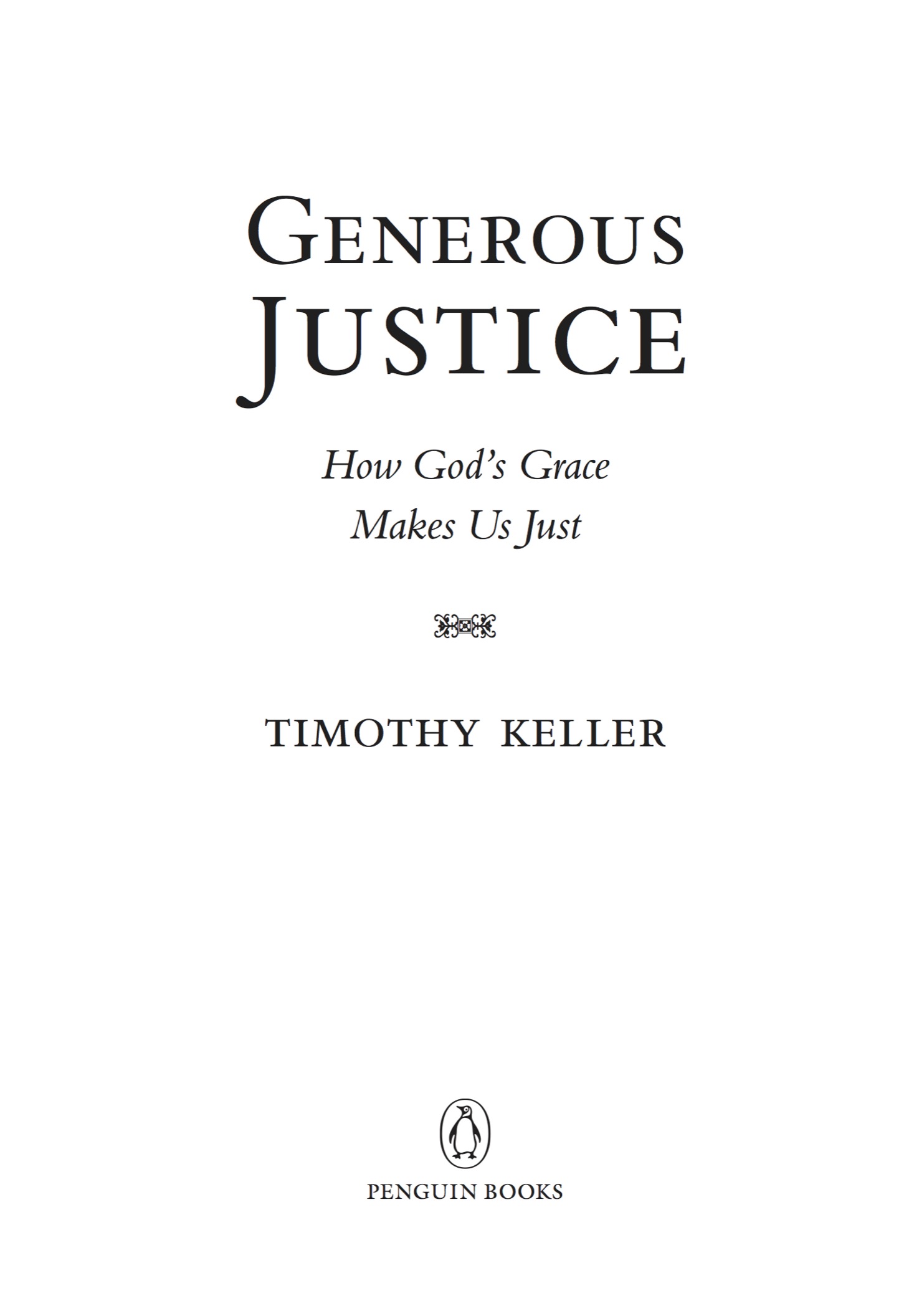Table of Contents
ALSO BY THE AUTHOR
The Reason for God
The Prodigal God
Counterfeit Gods
Jesus the King
The Meaning of Marriage
Center Church
Every Good Endeavor
Walking with God Through Pain and Suffering
Encounters with Jesus
Prayer
Preaching
The Songs of Jesus
To the Deacons and Deaconesses of Redeemer Presbyterian Church and the leaders of Hope for New York, with admiration and respect
INTRODUCTION
WHY WRITE THIS BOOK?
Unrolling the scroll, he found the place where it is written: The Spirit of the Sovereign LORD is on me, because the LORD has anointed me to preach good news to the poor. He has sent me to bind up the brokenhearted, to proclaim freedom for the captives and release from darkness for the prisoners.
Luke 4:17-18
These are the words Jesus read in the synagogue in Nazareth when he announced the beginning of his ministry. He identified himself as the Servant of the Lord, prophesied by Isaiah, who would bring justice to the world (Isaiah 42:1-7). Most people know that Jesus came to bring forgiveness and grace. Less well known is the Biblical teaching that a true experience of the grace of Jesus Christ inevitably motivates a man or woman to seek justice in the world.
While I was working on this volume, I heard two questions from friends: Who are you writing this for? and How did you come to be interested in the subject of justice? The answers to these questions are a good way to introduce the books themes.
Who Is This Book For?
There are four kinds of people who I hope will read this book. There is a host of young Christian believers who respond with joy to the call to care for the needy. Volunteerism is the distinguishing mark of an entire generation of American college students and recent graduates. The NonProfit Times reports that teens and young adults are leading enormous spikes in applications to volunteer programs. Alan Solomont, chairman of the board of the Corporation for National and Community Service, says that [this] younger generation... is more interested in service than other generations.
As a pastor whose church is filled with young adults, I have seen this concern for social justice, but I also see many who do not let their social concern affect their personal lives. It does not influence how they spend money on themselves, how they conduct their careers, the way they choose and live in their neighborhoods, or whom they seek as friends. Also, many lose enthusiasm for volunteering over time.
From their youth culture they have imbibed not only an emotional resonance for social justice but also a consumerism that undermines self-denial and delayed gratification. Popular youth culture in Western countries cannot bring about the broad change of life in us that is required if we are to make a difference for the poor and marginalized. While many young adults have a Christian faith, and also a desire to help people in need, these two things are not actually connected to each other in their lives. They have not thought out the implications of Jesuss gospel for doing justice in all aspects of life. That connection I will attempt to make in this book.
Justice and the Bible
Another kind of person who I hope will read this book approaches the subject of doing justice with suspicion. In the twentieth century the American church divided between the liberal mainline that stressed social justice and the fundamentalist churches that emphasized personal salvation. One of the founders of the Social Gospel movement was Walter Rauschenbusch, a German Baptist minister whose first pastorate was on the edge of New York Citys Hells Kitchen in the 1880s. His firsthand acquaintance with the terrible poverty of his neighborhood led him to question traditional evangelism, which took pains to save peoples souls but did nothing about the social systems locking them into poverty. Rauschenbusch began to minister to both soul and body, but in tandem with this shift in method came a shift in theology. He rejected the traditional doctrines of Scripture and atonement. He taught that Jesus did not need to satisfy the justice of God, and therefore he died only to be an example of unselfishness.
In the mind of many orthodox Christians, therefore, doing justice is inextricably linked with the loss of sound doctrine and spiritual dynamism. However, Jonathan Edwards, the eighteenth-century author of the sermon Sinners in the Hands of an Angry God, was a staunch Calvinist and hardly anyones idea of a liberal. Yet in his discourse on The Duty of Charity to the Poor, he concluded, Where have we any command in the Bible laid down in stronger terms, and in a more peremptory urgent manner, than the command of giving to the poor?
Unlike Rauschenbusch, Edwards argued that you did not have to change the classic Biblical doctrine of salvation to do ministry to the poor. On the contrary, such ministry flows directly out of historic evangelical teaching. He saw involvement with the poor and classic Biblical doctrine as indissolubly intertwined. That combination is relatively rare today, but it shouldnt be. I am writing this book for people who dont see yet what Edwards saw, namely, that when the Spirit enables us to understand what Christ has done for us, the result is a life poured out in deeds of justice and compassion for the poor.
Others who I hope will give this book a hearing are the younger evangelicals who have expanded their mission to include social justice along with evangelism. These authors usually argue that changes in theological emphasisor perhaps outright changes in theological doctrineare necessary if the church is going to be more engaged in the pursuit of social justice. The scope of the present volume prevents us from looking at these debates about atonement and justification. However, one of its main purposes is to show that such reengineering of doctrine is not only mistaken in itself, but also unnecessary. The most traditional formulation of evangelical doctrine, rightly understood, should lead its proponents to a life of doing justice in the world.
There is a fourth group of people who should find this book of interest. Recently there has been a rise in books and blogs charging that religion, to quote Christopher Hitchens, poisons everything. In their view religion, and especially the Christian church, is a primary force promoting injustice and violence on our planet. To such people the idea that belief in the Biblical God necessarily entails commitment to justice is absurd. But, as we will see, the Bible is a book devoted to justice in the world from first to last. And the Bible gives us not just a naked call to care about justice, but gives us everything we needmotivation, guidance, inner joy, and powerto live a just life.
I have identified four groups of readers who seem at first glance to be very different, but they are not. They all fail at some level to see that the Biblical gospel of Jesus necessarily and powerfully leads to a passion for justice in the world. A concern for justice in all aspects of life is neither an artificial add-on nor a contradiction to the message of the Bible.
Why Am I Interested in Justice?


